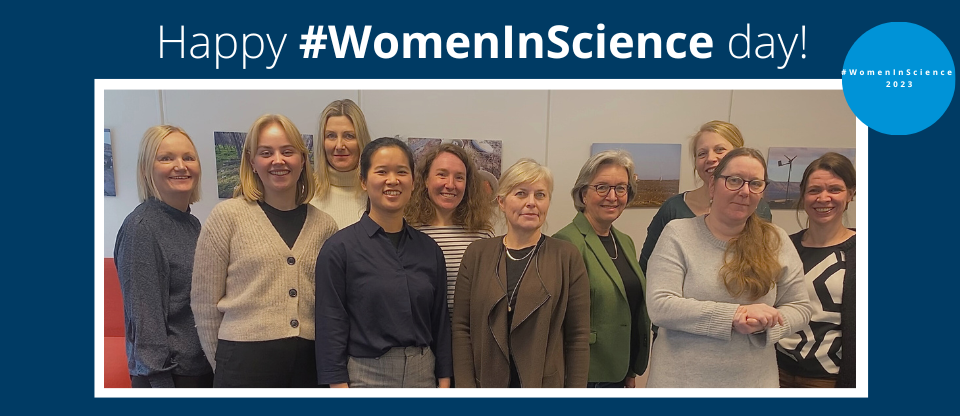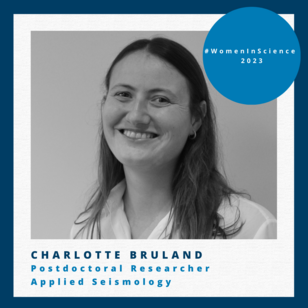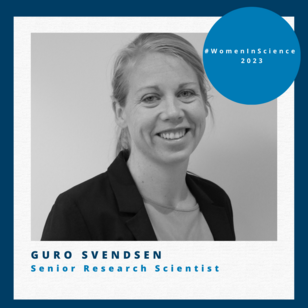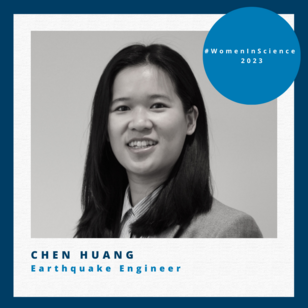We celebrate #WomenInScience!

On 11 February, we celebrate the International Day for Women and Girls in Science. The aim is to increase the representation of women within scientific disciplines. Get to know some of our female colleagues!
Although more women have access to education today than ever before, many opportunities and choices for women are still affected by social norms. This leads to women beeing underrepresented in disciplines such as Science, technology, engineering, and mathematics (STEM). These are areas that are fundamental to creating sustainable development.
Europe's talent shortage in research and science is best solved by motivating more women to immerse themselves in professional fields where academic stereotypes throughout history have slowed down diversity. Low female participation means that the areas have less access to knowledgeable people.
NORSAR's vision is to create a safer world through outstanding research on the earth's vibrations. In order for the employees to be able to work together towards this vision, it is essential that the company recruits human capital from the best and broadest knowledge base.
Throughout the week we have interviewed some of our female colleagues here in the building!

What do you work with at NORSAR?
I am a postdoc in NORSAR and the Center for Geophysical Forecasting. I am doing research on using seismic noise to look at changes in the ground and monitor potentially dangerous structures, such as quick clay.
What did you study – and why did you choose this field?
After watching a documentary about Yellowstone National Park in the USA, I decided to study geosciences.
Do you have any recommendations for women and girls who consider science?
Accept challenges and learn by doing.

What do you work with at NORSAR?
I work with Distributed Acoustic Sensing (DAS). We are looking at using optical fibers to detect vibrations.
What did you study – and why did you choose this field?
I studied physics and mathematics at NTNU in Trondheim. I chose my major mainly because I thought physics was fun in high school. As I got further into the course of study, I found the section on optics within physics to be particularly interesting. Therefore, I specialized with a master's in optics, and further with a doctorate in optical properties.
Do you have any recommendations for women and girls who consider science?
It is important to follow your gut feelings and choose what you think is fun and interesting. If you gain energy from your job, you know you have made the right choice. My advice is not to do only the things that are considered right all the time.

What do you work with at NORSAR?
I am an earthquake engineer working on seismic hazards and risks at NORSAR since 2021. Since then, I have participated in seismic hazard and risk assessment projects. I was a key member of TURNkey project and currently on the MEDiate project.
What did you study – and why did you choose this field?
I gained the B.Eng degree in Civil Engineering in 2014, M.Sc in Earthquake engineering and disaster management in 2016 and PhD in earthquake engineering and applied seismology in 2021. The reasons for my choice are two-fold, family influence and personal interest. My father is an experienced structural engineer, and has inspired me to be an engineer solving problems with practical solutions. As I continue on the journey to becoming an earthquake engineer, I get more and more interested in this field. I have experienced many strong earthquakes and witnessed the devastating consequences of these events. This keeps me motivated and I am happy to contribute to that through my work at NORSAR.
Do you have any recommendations for women and girls who consider science?
Be confident in yourself when you are exploring the science world. Science is a long journey that may or may not have a clear destination. Remind yourself to be motivated and curious during the journey. Equally important, enjoy your life!